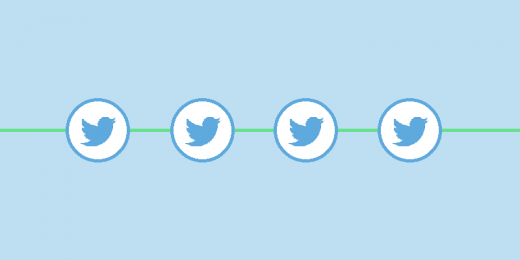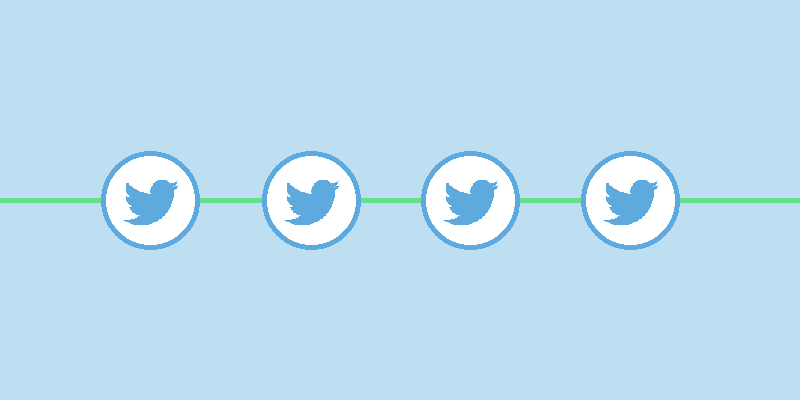Social Signals “Not Ranked” by Google? Not So Fast!
June 19, 2016
Everyone knows how important social media is to SEO, right?
Actually, not even Google seems to know how important it is. How else can you explain why they sometimes say they do rank social signals, but later say they don’t?
For example, take this recent Twitter conversation with Gary Illyes. The statement in question was whether Google “takes social into account for SEO.” Illyes responded with a Matt Cutts video from 2014, and stated that “the short version is, no, we don’t.”
Well, what about the long-version answer? We’re willing to bet that the explanation might not be as easy to answer as a simple “no.”

Getting a firm answer from Google on just about anything is almost impossible, and their stance on social signals is no different. We know how Google generally feels on certain topics, but rarely has Google been so back-and-forth as the social signal one. And maybe, just maybe, what they say and what they do don’t quite line up.
We think a little skepticism is healthy. Look at it from our perspective—we at SEO Inc. are a premier internet marketing agency. We’ve seen over 20 years of industry changes, and one thing that no one seems to agree on is whether Google ranks social signals or not. We’ve heard multiple times from Google themselves that social signals are a ranking factor, but then things like this show up… and we just have to wonder.
But you know better, don’t you? That social signals do matter for SEO. It’s time to dive into this topic and show how they do, once and for all.
The Matt Cutts Video
First, let’s look at Illyes’s response: the Matt Cutts video from 2014. In summary, Cutts answers a question on whether Facebook and Twitter signals are part of the ranking algorithm. He says that Facebook and Twitter pages are “treated just like any other pages in our web index.” He also says there are currently no special algorithms that look at how many Twitter followers or Facebook likes a page has.
We emphasized the word currently because although the video is two years old, Illyes linked it as an explanation, which we can take to mean that what it says still holds true.
Cutts goes on to explain Google doesn’t want to have social as part of a ranking algorithm because they can occasionally have content blocked from these sites (they were once blocked for a month and a half from one). He also cites complexities like having fetched and rendered a page that is then changed by a user—a relationship status, for instance—which Cutts calls an example of “sampling an imperfect web.”
At the same time, Cutts encourages the use of Twitter and Facebook, saying they can “drive visitors and traffic to your site” and “let people know about news related to you or your company or your website.” He also makes a point about correlation vs. causation, how a link in a Facebook post can seem popular because of how many likes it gets, but it’s really the link to something engaging that’s causing the post to get so much attention.
As we said before, Illyes linking this video means that a lot, if not all, of what Cutts says here is still relevant: Google does not have social signals as part of its ranking algorithm. However, much of what he says reinforces what we know about using social to help boost your site’s rankings.
So even if social media is not a part of the ranking algorithm itself, it can still be effective.
Here’s why:
Social signals can be a good indicator of expertise.
Remember the E-A-T principles? That’s the acronym from Google’s quality raters’ guidelines that stands for “Expertise, Authoritativeness, and Trustworthiness.” Of those, social looks to have the most effect on expertise.
Expertise is partly driven by what Google identifies as quality conversations, like those on a community forum or discussion board. Google has recently said how a website’s community can influence a website’s rankings by the conversations they have. If what they’re discussing is useful and relevant to user searches, the site’s visibility could increase. So the next logical thought is, what better place to start conversations than on social media?
The problem with this is that these conversations don’t happen directly on your website. Since social signals happen off-site, they aren’t a direct benefit to you. But they do get you increased visibility, which when picked up by authoritative readers can lead to high-quality backlinks. This feeds into the other principles of E-A-T, which can help boost your site’s rankings.
Be Social, Be Ranked
So yes—it’s likely that Google does rank social signals, but not directly. It’s far more likely that they look at backlinks posted on social, such as those embedded in tweets. Any credible backlinks would be marked by Google and then factored in when calculating a page’s rank.
And that explains the need for businesses to be active on social media. Google was telling the truth when they said social signals may not directly affect your site’s rankings—but what they leave out time and time again is that these signals do help. A lot.
Do you know what social sites would work best for your business? And what about Facebook, which isn’t crawled by Google?
Seek out strategic social media management to learn the answers. Doing social the right way is the only way to take advantage of Google’s social signal influence. And when you do, you’ll be able to drive engagement and direct users to your site.
Digital & Social Articles on Business 2 Community
(19)



